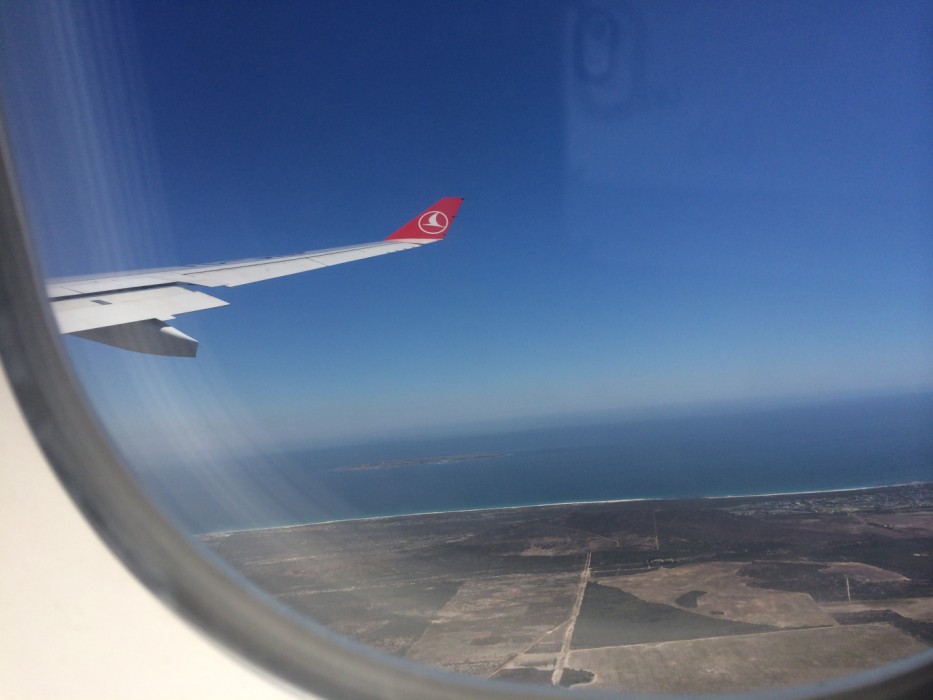
The Anxious Expat Who Really Missed Home
I used to think anxiety and depression were all a load of hogwash, those things cray-cray, pill-popping people go through; until, quite suddenly, I woke up as an expat living abroad and didn’t feel at all myself. It started with a panic attack in the middle of the night, when I was woken up by […]

I used to think anxiety and depression were all a load of hogwash, those things cray-cray, pill-popping people go through; until, quite suddenly, I woke up as an expat living abroad and didn’t feel at all myself.

It started with a panic attack in the middle of the night, when I was woken up by uncontrollable sobbing and difficulty breathing; wild, bolting thoughts about life and a deep-seated worry about everything that was nothing. And then, as I’ve come to learn about panic attacks, I had exhausted myself and fell back asleep. That was in June 2015.
[quote_center]”If there is anything I have learned: you have to admit it to yourself before you can deal with it.”[/quote_center]
The weeks that followed were a confused mix of reactions to everyday, normal stuff. Anything could trigger an attack: once I sobbed so hard before I got in the car, I had to pull over at a petrol station to sleep it off. Another time, I couldn’t breathe in a packed square of people and stood facing a pillar and sobbing until I could make the 500m walk home. Often before dinner parties or social events, I would crack and barely manage to pull myself together before walking out the front door.
Anxiety is a vicious cycle: you’re emotionally tired so you don’t have the energy to keep up with the weekly stuff like food shopping or cleaning the house or organising your life, and then you don’t eat what you should and your body gets more and more tired, and then you can’t sleep because you’re too tired, so you work harder and harder, and then you don’t feel hungry, and then your mind starts to run off without you.
It wasn’t long before I was depressed.

It’s still a self-conscious thing to talk about with other people (or in a blog post for that matter) but it forces me to get over it and hopefully encourage others to do the same. Day-by-day, I get stronger. The depression has lifted and the panic attacks have lessened. I am determined to let it go and watch as it floats off without me.
If there is anything I have learned: you have to admit it to yourself before you can deal with it. You have to say to yourself: “I am anxious and depressed and I am going to do something about it.” It’s not easy for those of us who are personality-proud and unfamiliar with weakness.
[quote_center]”Expat life is almost always a rough ride.”[/quote_center]
Then, you have to realise that the responsibility to heal lies with you and no one else. And you almost certainly have to scream it out aloud that you will not let these emotions own you anymore, that you have the strength to let them go and that you will give yourself the resources to do it.
So I started making small shifts in my life; shifts so small that only I knew I was making them.
I have never been one for pills and artificial medication so I avoided all that nonsense and focused on natural ways to get better. I picked up running again. Some days, I was so low, it took every last drop to get out of bed, put on my takkies and go for that run. But I did it. Almost without realising it, I slowed down on red meat, sugar and coffee. Even a glass of booze weakened my mind so I cut that out too. I cooked dinner for myself and ate, even if I wasn’t hungry, and I got my seven-hours sleep, even if I wasn’t tired.
I read a helpful book on boundary-setting and red-lined the people and situations that were thieving my emotional energy. I turned my phone off over weekends and didn’t fuss myself to reply or keep in constant touch. I asked for support from the people who were nearest to me: my parents came to stay and my man came home from work. Their love comforted me.

I still see an acupuncturist once a week to keep my energy levels in check. I do Pilates almost everyday. I say ‘no’ to the things that drain me and I am getting to know me again. Healing takes time.
—
Looking back, I have come to learn I am not the only one who has dealt with this ‘expat anxiety‘ as I call it. Over the time I have been abroad, I have met many South Africans and other nationalities who have packed up their lives, left behind what they knew, waved goodbye to families and friends and planted themselves in foreign soil; only to find that it’s not that easy.
And then you realise how ambitious you were to believe you could just seamlessly transition from one continent to the next, drop into another rhythm of life and just get on with it. In most cases, expat life is almost always a rough ride.
It’s a difficult thing to describe to people who haven’t done it or to South Africans who can’t bear us for leaving.
All things considered, I am grateful for the opportunity to be abroad and build my days from scratch in a new place and alongside a man I love. I don’t feel sorry for myself. I want to look down on this as my ‘First World problem’ that taught me a thing or two and made me a better person.
View the original post – and more – on The Swedish African (reposted here with kind permission).